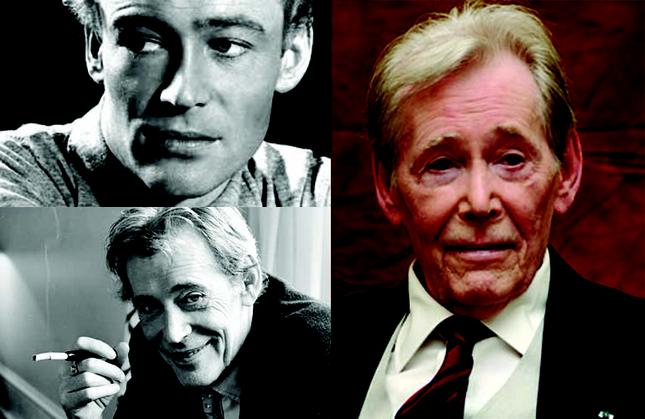Acting Great Peter O’Toole Takes His Final Curtain Call
By • December 19, 2013 0 2183

If Richard Harris and Richard Burton, actor Peter O’Toole’s boon companions in riotous self destruction, are anyplace where they can be gate-keepers or greeters, they might give an exasperated greeting to the new arrival. Something on the order of “Well, Peter, it’s about bloody time, for heaven’s sake.”
Together, O’Toole, who died at the age of 81 over the weekend, finally closing those wonderfully magnetic blue eyes, Burton and Harris were three of the most celebrated film and stage actors in the world. They were also three of the most celebrated pub crawlers and hell-raisers in the world and were not expected to live into a ripe old age.
Burton, after two tumultuous and, yes, celebrated marriages and divorces to Elizabeth Taylor, went first at the age of 58 in 1984. Harris died at the age of 71 in 2002. O’Toole, who was plagued by ailments often, made it to 81. All three of them—with bloodlines that were Welsh (Burton) and Irish (Harris and Burton)—were brilliant actors, who, once you saw them at the top of their game, you never forgot them.
Burton always felt that he had never quite lived up to his promise—which was huge, and included Shakespearean pinnacles like “Hamlet” and (with Taylor) “Taming of the Shrew.” He, too, somehow never managed to win an Oscar in spite of “Who’s Afraid of Virginia Woolf.” Harris gained instant, unforgettable fame in “This Sporting Life” a black-and-white British film from the 1960s in which he played a ferocious, raging Rugby player, then, coincidentally and late in life, took up the mantle of King Arthur in a touring company of “Camelot.” In an interview with the Georgetowner at that time, Harris was asked if all the tales of carousing among the three were true. After a considerable silence and pause, he said, “Ah, hell yes, but those days are long gone.”
O’Toole—by God, he will always be T.E. Lawrence, “Lawrence of Arabia,” in David Lean’s epic star-studded epic—was a relative unknown who took on the title role turned down by Marlon Brando (can you imagine?) and killed it: on top of a train in the Middle Eastern desert, leading an Arab uprising against the Ottoman Empire as best personified in a creepy turn by Jose Ferrer as a Turkish officer. It was an international cast: the Egyptian Omar Sharif as a young Arab leader, (“Doctor Zhivago” came next), the English Alec Guinness as a sheik, and the Hispanic Anthony Quinn (pre-Zorba) as another Arab leader. O’Toole practically blotted out the sun, blue eyes blazing in the desert.
He had seven Oscar nominations but never won—he did get an honorary lifetime achievement award. Both he and Burton, working together brilliantly were nominated for their roles in “Becket,” O’Toole as Henry II and Burton as the resolute and rebellious Archibishop of Canterbury. The two men were old, carousing friends, until Thomas a Becket challenged the authority of the king. O’Toole played Henry again in “The Lion in Winter” opposite another legend, Katharine Hepburn, as Eleanor of Aquitaine.
O’Toole never stopped acting until recently, when he retired from acting last year. He played a pope in “The Borgias,” for one thing, and was absolutely unforgettable once he turned to character parts, including the Errol Flynn-based character of a movie star trying out the perils of live television in “My Favorite Year.” He, too, played “Hamlet” at the National Theatre, directed by Laurence Olivier. He acted on the stage unto the 1990s.
Other memorable roles—in television as well as film—included a serial-killing Nazi general in “The Night of the Generals,” an obsessive director in “The Stunt Man,” the title role in “Lord Jim,” King Priam of Troy in “Troy” (starring Brad Pitt), a future Roman emperor in “Masada” on television and an elegant thief in “How To Steal a Million”.
Somewhere at some cloud-side pub, the doors are open for another round for O’Toole, Harris and Burton, giants all, with tales to tell and parts to play.

